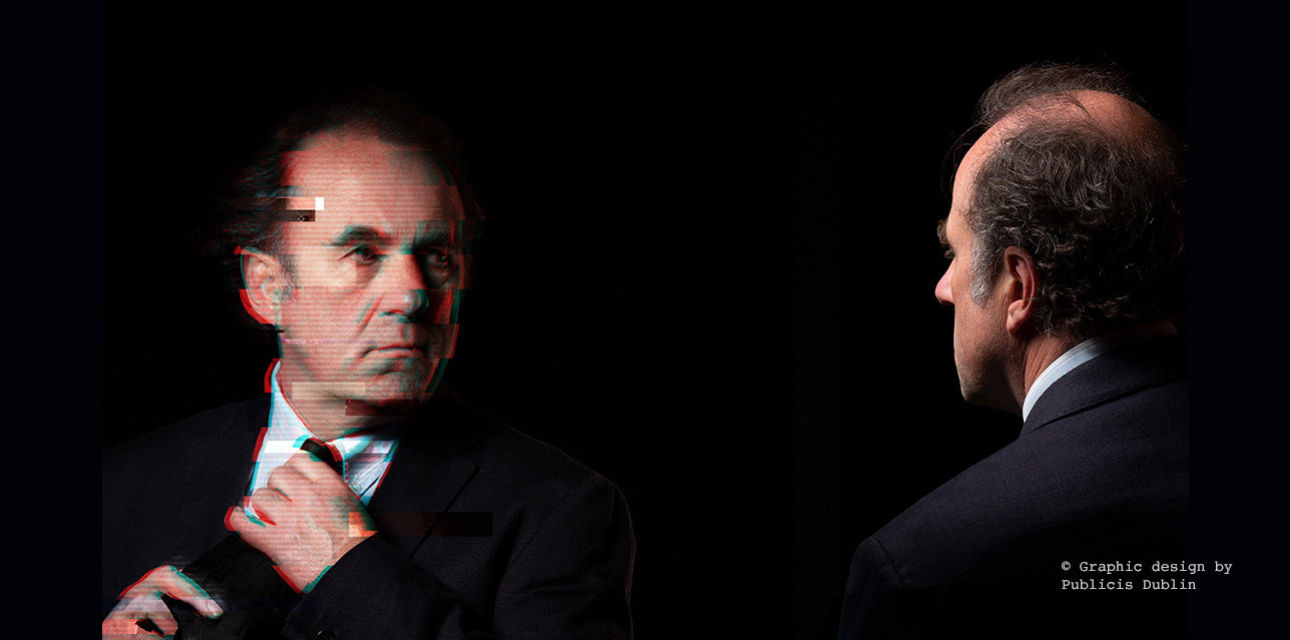Yeats wondered, in the wake of the 1916 Rising, whether Dublin’s carnage had been in vain and concluded – with characteristic myopia – that it probably had been. Despite it all, it seemed to him, old England could ‘keep faith’ in its now-chastened Irish stronghold. However, Yeats’s difficulty is The Alternative’s opportunity, situating itself in an Ireland of whose future the poet has proved more prescient: no Republic here, and no break with the Union – we see instead a form of Irish self-government which looks a lot like Scotland’s.
The occasion is the eve of Ireland’s independence referendum, and the location is “BBC Ireland”’s TV studios. The set is unchanging: below, the cameras and familiar perspex podiums of televised debate; upstairs, a producer’s nondescript office. Off to the side, a few props suggest a skeletal control room.
“…Yeats’s difficulty is The Alternative’s opportunity, situating itself in an Ireland of whose future the poet has proved more prescient…”
As the night progresses, however, the line dividing the stage from our seats is steadily erased. There’s metatheatre, and then there’s this performance: two seats in front of me, watching the smug and smarmy BBC presenter played by Rory Nolan, is the real Pat Kenny; two seats to Kenny’s left, watching the oleaginous manoeuvrings of a career-political, female Prime Minister, is Mary Hanafin. When someone stands up among the audience to berate this PM, it is uncertain, for two whole minutes, whether the interruption is scripted, spontaneous, or something in-between.
The writers Michael Patrick and Oisín Kearney (self-described ‘Irish citizens living in Northern Ireland’) succeed in depicting an Ireland at once fantastical and accurate. Indeed, it’s a depiction which goes beyond accuracy, staging the awakening of a political force which, while potent, has been largely dormant in Ireland as of yet. Think of Sinn Féin veering rightwards and converging with Peter Casey, and you have Peter Keogh (played convincingly by Arthur Riordan with less of a nod than a head-butt to Casey) and his Irish Parliamentary Party.
A paralleled domestic plot-line concerning a BBC producer and his troubled daughter is less satisfying, and remains unintegrated on the whole. In fact, the daughter – a schizophrenic with the fitful ability to see ‘alternate realities’ – is a figure of near-offensive condescension, and the conjunction of this narrative with the larger degrades them both. A fair performance from Maeve Fitzgerald composes the best of the character, but that best isn’t much. By the time this strand of the play is resolved, any residual concern of mine has retired for the night.
“When someone stands up among the audience to berate this PM, it is uncertain, for two whole minutes, whether the interruption is scripted, spontaneous, or something in-between.”
The acting is uneven. Rory Nolan is funny and his performance is carried off with ease – an ease understandable considering he has simply transposed his role as Ross O’Carroll-Kelly into an entirely different play. On one hand, Lorcan Cranitch is excellent throughout. On the other, Rachel O’Byrne’s Hannah is simply mediocre.
In fact, it is unevenness which besets the production as a whole – a late ‘revelation’ of sorts in the play as well as events nearing the end of the performance strain credibility. Be that as it may, the genuinely thrilling moments throughout, combined with the writers’ timeliness in examining this inchoate political force, make The Alternative a play well-worth attending.
The Alternative runs from 4-5 October in Draíocht Blanchardstown as part of the Dublin Theatre Festival.






